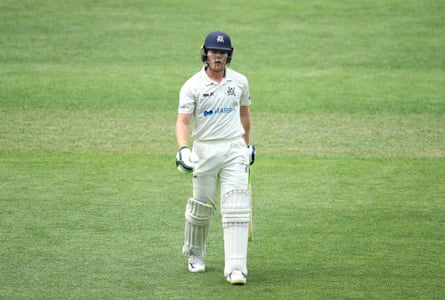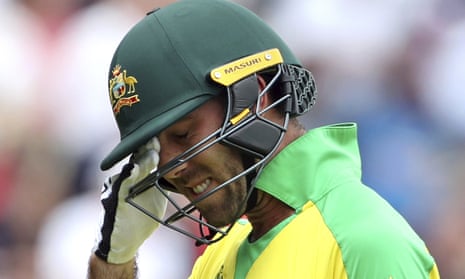Shortly after news emerged last week that another player would step away from the game indefinitely, Cricket Australia sought to dispel suggestions of an emerging mental health crisis. Young batsman Will Pucovski ruled himself out of selection for Australia’s upcoming Tests against Pakistan less than a fortnight after Victorian teammates Glenn Maxwell and Nic Maddinson similarly revealed their own personal struggles.
CA was adamant, however, that their sport was merely reflecting a wider issue. “What we’re seeing in our players is a snapshot of society,” head of sports science Alex Kountouris said. “They’re not more vulnerable or less vulnerable than others in society of a similar age group.” This was reiterated by newly appointed executive general manager of national teams Ben Oliver: “This is not a sport thing. It’s not a cricket thing, it’s a society thing.”
Research indicates CA is likely correct. To date there is little to no evidence to suggest professional sports people experience mental health issues at a higher rate than the general population. But sports psychologists say cricket’s unique demands may exacerbate existing issues. While crammed scheduling and social media abuse have been raised as key elements of the mental health debate, the sport’s relentless mental challenges may also play a role.
“If we look at cricket and the unique individual battles and the way you can be exposed if you show weakness, that can really be something that people play on,” Dr Richard Keegan, sport and exercise psychologist at the University of Canberra, tells Guardian Australia. “That has the potential to really play into vulnerability and self-awareness.”
Most people familiar with the game, from park cricket upwards, know the sport is almost encased in anxiety and insecurity. Superstitions and dressing room idiosyncrasies reflect this, particularly those waiting to bat. It is perhaps no surprise that five high-profile Australian cricketers who acknowledged mental health issues in the last 12 months are all (predominantly) batters – Maxwell, Maddinson, Pucovski, Nicole Bolton and Moises Henriques.
“In some sports you make a mistake and you’re straight into the next point or phase,” Keegan says. “That’s not always the case in cricket. It places a premium on not making mistakes and avoiding failure. That particular mindset, that avoidance of failure and intolerance of failure, often underpins a lot of commonalities in different mental illnesses.”
When Henriques spoke with the ABC’s 7.30 last year detailing his long struggle with depression, he confirmed this was his mindset. “I was so afraid of failure, I was so afraid of missing out,” he said. “I was blaming cricket for my anxiety and I wanted to do well so much that it just took over. It just wasn’t healthy at all.”
Compared with the football codes, few get the chance to play elite cricket in Australia. Dr Bradley Elphinstone, lecturer in psychology at Swinburne University, says when goals are not achieved at the ultra-competitive selection table, players can struggle. “If you have a professional athlete in any sport who base their self worth and identity on performing at a very high level and they don’t, in addition to all the media and social media criticism, they are putting a lot of negativity onto themselves. I can certainly see how that builds up and causes mental health issues.”
Elphinstone agrees that cricket presents challenges different to most other sports. “I think it is unique in a lot of ways,” he says. “There’s a real demand on long-term concentration that may be beyond a lot of other sports…the need to concentrate for a sustained period of time.”

The nature of each player’s personal issues, as has been seen in the past fortnight, are markedly different. For some the relentless nature of modern scheduling has proved overly taxing, while for others the relentless negativity of social media has taken its toll.
Positively, the player perhaps best placed to understand the challenges of relentless travel and social media abuse is Shane Watson, who was last week appointed president of the Australian Cricketers’ Association. He has already declared mental health as his number one priority in the role. Other positives have also emerged, in particular Virat Kohli’s strong support of Maxwell and admission of his own struggles.
Both experts say self-reporting is rightfully being praised.
“There’s obviously the traditional view that if you can play for your club or country then you should, no questions asked,” Keegan says. “But that’s typically how people can get into trouble and push themselves too far. By stepping up and speaking out, that begins to normalise these conversations, and takes these thoughts from being suppressed or taboo.”
Elphinstone adds: “There is a shift in the social narrative from it being a sign of weakness.”
A sharpened focus on the issue from both the ACA and CA would suggest the sport’s key bodies won’t be caught unaware should further players seek time away from the game. No one could say how many that might be, but some believe the issues of the last fortnight may be the tip of the iceberg – a view reinforced by Henriques earlier this year. “I think it [mental health issues] is very prevalent in cricket. I definitely think there are a lot more people that suffer in silence.”
